I like to begin the Landmarkings series with a passage from a work of fiction that evokes something of how we inhabit places. Here’s a passage from Daphne du Maurier’s Rebecca. Press play for an extended reading (forgive the background noise, I recorded it in a cafe near an airport):
This house sheltered us, we spoke, we loved within those walls. That was yesterday. Today we pass on, we see it no more, and we are different, changed in some infinitesimal way. We can never be quite the same again. Even stopping for luncheon at a wayside inn, and going to a dark, unfamiliar room to wash my hands, the handle of the door unknown to me, the wallpaper peeling in strips, a funny little cracked mirror above the basin; for this moment, it is mine, it belongs to me. We know one another. This is the present. There is no past and no future. Here I am washing my hands, and the cracked mirror shows me to myself, suspended as it were, in time; this is me, this moment will not pass.
Making sense of the world & our place in it
Earlier this month, thinking of family reunions as we segued into the Chinese New Year—a handful of moments in this Chang Rae Lee essay, Coming Home Again, broke me in little ways. In this passage, he writes about his mother:
She believed back then that I had found her more and more ignorant each time I came home. She said she never blamed me, for this was the way she knew it would be with my wonderful new education. Nothing I could say seemed to quell the notion. But I knew that the problem wasn’t simply the education; the first time I saw her again after starting school, barely six weeks later, when she and my father visited me on Parents Day, she had already grown nervous and distant. After the usual campus events, we had gone to the motel where they were staying in a nearby town and sat on the beds in our room. She seemed to sneak looks at me, as though I might discover a horrible new truth if our eyes should meet.
How Berlin’s club scene is weathering the pandemic, by Arikia Millikan and Ruben Salgado Escudero:
But most interestingly, many nightlife spaces also found ways to contribute to the battle against COVID itself by converting into coronavirus testing and vaccination sites, offering former employees the opportunity to reinvent themselves in a new line of work.
For Basti Schwarz, who became the staff manager at Arena Berlin after spending the previous 30 years of his life touring around the world with his brother in the DJ duo Tiefschwarz, working at the former concert venue turned vaccination center provided a rare opportunity to have a social life while staying put and remaining in the present. Basti estimated that 85 percent of the vaccination center employees at Arena came from the nightlife world, from artists to booking agents to bouncers, which presented an interesting working and social environment in daylight life.
Her Name Is Untac: UN Peacekeepers’ Forgotten Children in Cambodia, by Marta Kasytelan:
Even today, all she knows is that she resembles the Ghanian United Nations peacekeeper who left Cambodia shortly after her birth in the early 1990s. The exact year of the man’s repatriation and Zamel’s birthday, like many aspects of her biography, are unclear. Her family identification document, or family book, says she was born in 1990, but that is almost certainly incorrect. Mistakes on official documents, especially dates of birth, are common in Cambodia. Zamel’s given name on her ID card is “Untac”—the acronym for the UN mission that brought her father to Cambodia and lasted from 1992 to 1993.
How Malaysia Got in on the Secondhand Clothing Boom by Ezra Marcus, with reporting by Ushar Daniele. The story began with a question: “I’ve wondered for a long time why all the best clothes on Grailed and Etsy seem to be in Malaysia”:
Nowadays, a given clothing item—say, a Nike hoodie—may be made in a factory in Taiwan or Bangladesh, sold to the United States, donated to Goodwill, shipped in a bale to Malaysia, and then sold back to the U.S. on Etsy.
'Colonialism had never really ended': my life in the shadow of Cecil Rhodes, by Simukai Chigudu:
I am often asked how I feel about being an associate professor at Oxford, specialising in African politics. Do I see any contradiction in working for the institution that I am agitating to change? Who is the target audience of my writing—privileged, often white students, or my fellow Africans? The answers to such questions are long. However, there’s a fallacy in thinking that Africa is where I am needed most. Yes, I remain committed to writing about the combustible politics of the country of my birth, and I hope the true promises of liberation will be fully realised one day. But Oxford, Britain, and the west must be decolonised, too. Essential to this is advancing a richer, more complex view of the imperial past and its bearing on the present. Zimbabwe is not Britain’s troubled former colony—it is its mirror.
No school, no hair cut: one girl’s journey through one of the world’s longest Covid lockdowns, by Naomi Larsson and photographer Irina Werning:
Animals That Infect Humans Are Scary. It’s Worse When We Infect Them Back, by Sonia Shah:
For spillback pathogens, cities full of people, colonies of free-living animals and herds of captive animals are an unbroken continuum of flesh and tissue to exploit, but for our surveillance systems, humans, wildlife and domesticated animals are separated into three distinct biotic spheres, monitored by different entities with peculiar jurisdictions and distinct technical approaches. Those creatures that defy our ontological categories—the supposedly tamed captives that go feral, for example, or the wild creatures intimately embedded in civilized spaces—can escape notice entirely.
I started this list with mothers, here’s ending it with fathers—one of my favorites from a while back. Schemes of My Father by Eric Puchner is about how his “East Coast dad tried to relocate—and reinvent—himself in the land of red-hot cars and eternal suntans”:
At the beach club, my father circled the parking lot a couple of times in the car he drove most often, a Porsche 928. I don't know why he wanted to impress the guests so badly, but I suspect it had something to do with the vision of Californian life arrayed so platonically before us: the mothers in bikinis, the thwock of Smashballs, the smell of sun lotion mid with the briny breeze from the ocean, whose gentle waves seemed to frost the sand like a cake. Boys in Jams and rope bracelets slurped Cokes or played volleyball or skimboarded across the wash with sunglasses on. These of course were the effortlessly tan Californian kids I so admired and feared, the ones who knew how to surf and skateboard and had managed to lose their virginities at preposterously young ages, generally to their older sisters’ friends. They said “gnarly” with a straight face and spoke in a diabetic drawl that made each word seem like a message washed up on the beach. No matter how hard I tried, I couldn't get tan, and though I burned my face and arms every summer to a freckled variant of brown, my legs were hopelessly immune to the sun's rays.
Something to think about
To immigrants, papers are everything. They can also mean nothing. For how often my community gets called “undocumented,” perhaps no one in this country possesses more documents, or clings to them more fiercely to prove their existence, than we do. Practically every immigrant family in this country has a thick folder padded with their most valued documents—some put them in a safe box; others make virtual copies that they upload to encrypted cloud servers. Even vaccination charts or a spelling-bee certificate can prove something. I keep my papers in a yellow manila envelope.
—Jesús A. Rodríguez in The Heaviest, Lightest Thing
A sound note: Someone busking on a wet day in a tube station in London.How we make sense of the world & tell its stories
As I slowly make my way through The Dawn of Everything by David Wengrow and the late David Graeber (of Bullshit Jobs fame)—btw, an interesting exchange on the book between Kwame Anthony Appiah and the authors here and here—I’m thinking of how the increased popularity of Big History, epitomized by Yuval Noah Harari’s Sapiens, has changed our way of thinking about the world and ourselves. As someone who is more naturally a generalist (perhaps it’s wired to the storytelling impulse?), I feel like this broader, more holistic view offers up refreshing perspectives, and its proponents say it may serve to overcome nationalistic impulses and unite a fragmented world. But it also has its shortcomings. What Big History misses by Ian Hasketh offers some insights, including the history of Big History itself:
What accounts for Big History’s attraction for popular audiences and educators? For Christian and other big historians, the answer is built right in to the premise of writing Big History in the first place. By producing an overarching story of life, Big History is meant to fill the void that was left by the processes of secularisation that have dismantled the holistic narratives that were provided by traditional religious systems. According to Christian, secularisation has left people feeling fragmented and searching for some sort of grander vision and meaning of life that they can no longer find in religion. In supporting this view, Christian often refers to the French sociologist Émile Durkheim, who in 1893 argued that modern life has engendered a state of ‘anomie’, meaning that most individuals find themselves disoriented and uprooted from a deep sense of social belonging. Big History should, therefore, be understood as providing the kind of holistic meaning that used to come from religion. In this way, it is a ‘modern creation myth’ or an ‘origin story’, but one based on science rather than ancient scripture.
Robert Macfarlane, reviewing three books on wayfinding in Landscapes Inside Us:
Underlying all three of these books is a deep belief in the importance of collaboration and cooperation between humans and their environments, as well as between humans and other humans. Having read them, I’ve come to think that we might best imagine wayfinding not as a skill or art but as an ethic. The abilities that are cultivated in wayfinding—imagining things from different viewpoints, moving the mind backward and forward in time, seeing situations from other perspectives, weighing alternatives subtly against one another before making the best decisions, seeking information from others and giving it freely in return—might be the same abilities that contribute to a resilient, equitable community or polity. If this is wayfinding, then we need it now more than ever.
Re-reading some of Joan Didion since her passing. Here, a less oft-quoted passage from her 1975 commencement address that was making the rounds:
That was the question the ‘60s gave us—was there any objective reality? That was the question most of you grew up on. And you grew up, a lot of you, correctly suspicious; suspicious of ideologies and answers and easy symbols. And you’re probably not in too much danger of being blinded by those things.
I think what you might be blinded for, what you ought to watch out for, is the habit of saying no, the habit of not believing anybody or anything. You’ve got to watch out for moving into a world where you don’t think there’s any objective reality, where there’s only you and that tree you just planted. There’s an objective reality, there is an objective social reality. Take it on faith.
All I want to tell you today, really, is not to do that. Not to move into that world where you’re alone with yourself and your tree. I want to tell you to live in the messy world, throw yourself into the convulsion of the world.
Reader rolodex
As more readers subscribe to this newsletter, I’ve invited some of you to share what you’ve been tending to, professionally or personally. In this letter, say hello to Amanda:
“I’m Amanda Magnani, a Brazilian (photo)journalist, passionate about the human side of stories. I am currently living in the Czech Republic, after having spent a year in Denmark and six months in Ireland—a lot of moving around since the pandemic started.
Over the last year, my work has mostly been focused on migration and climate justice—preferably with a strong gender perspective. As a storyteller, I believe knowledge can’t be separated from those who produce it: it’s always situated and anchored on experience. This, however, doesn’t have to be a limitation. Quite the opposite. Every story I tell is a reflex of my perspective as a woman, as a Latin American, as an immigrant.
As this new year starts, I hope to continue bringing forth stories that matter and that, hopefully, promote change.”
Read Amanda’s work on how refugees are being forced to leave Denmark and how melting Andean glaciers are reshaping indigenous rituals.
And I leave you with…
“Joy is not made to be a crumb.”
Some very kind words from a new reader:
I want to thank you for your contribution to some really interesting articles. I’ve been enjoying your newsletter; the subject matter is capacious and your writing style is succinct and unique. When I'm reading your webpages, it's like going down another rabbit hole, but one filled with intrigue and relevance.
—Jan Setter
If you’ve been enjoying Movable Worlds, please share it with your friends.
Yours,






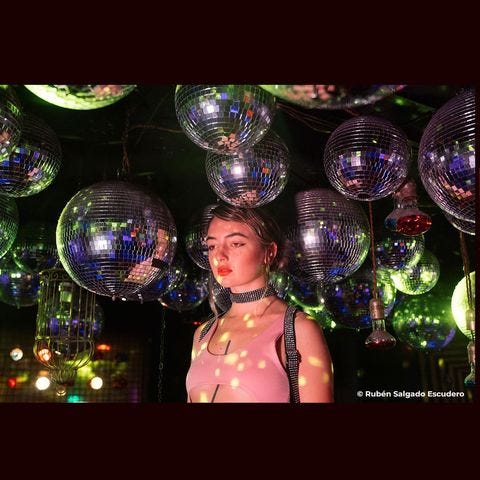
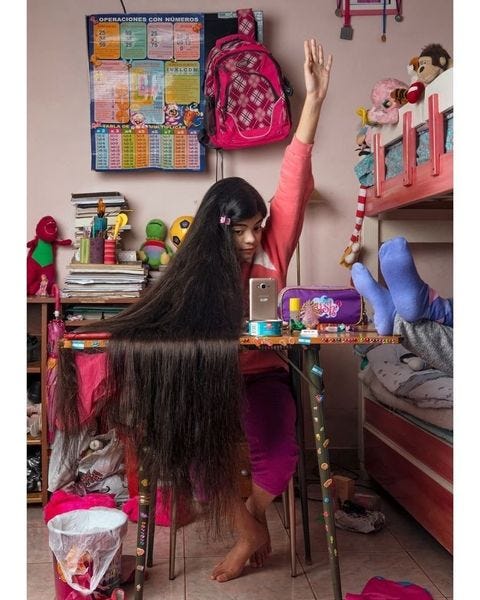
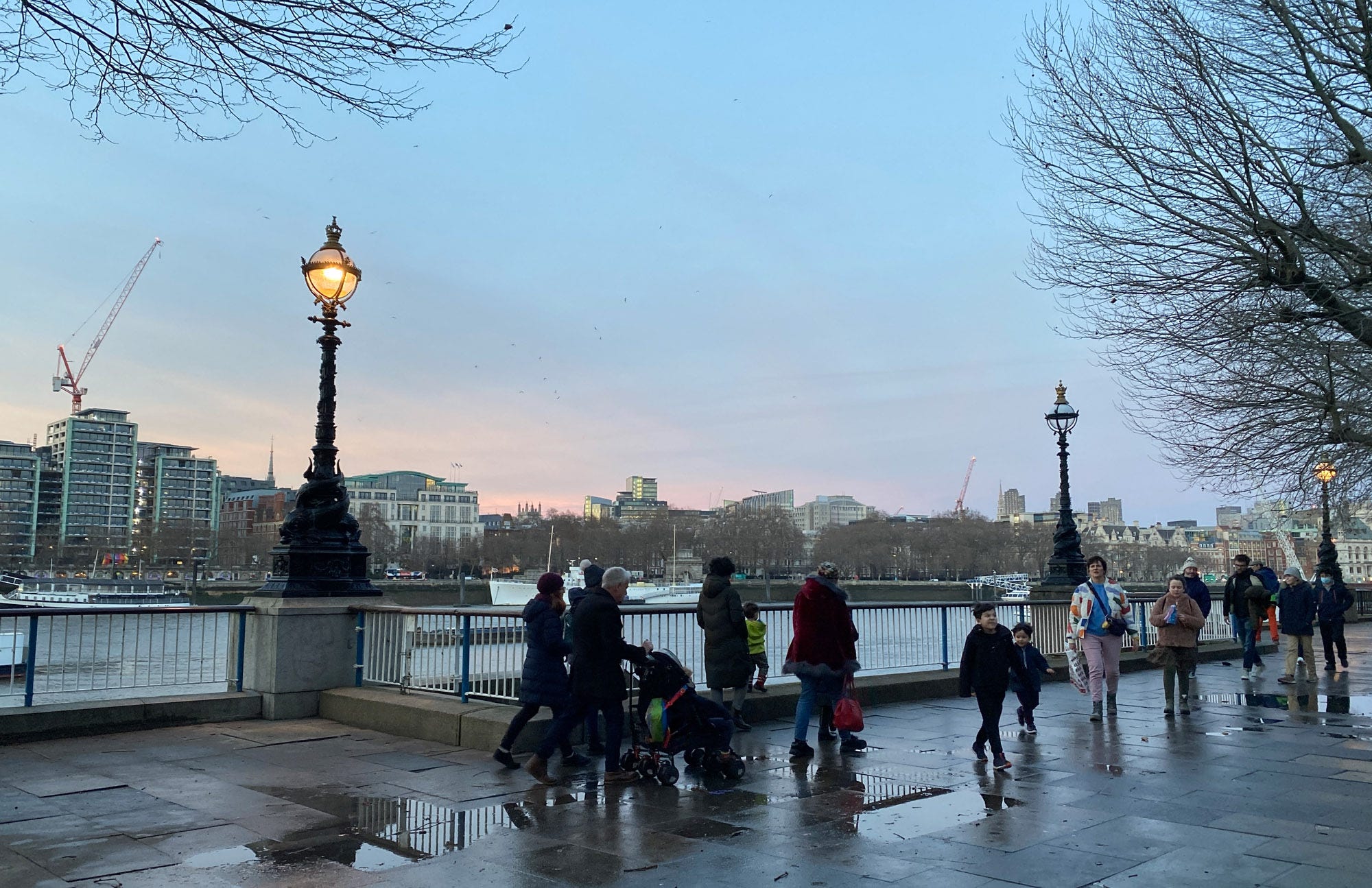
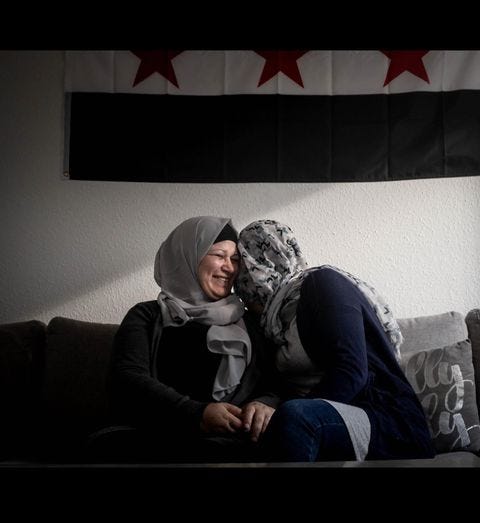

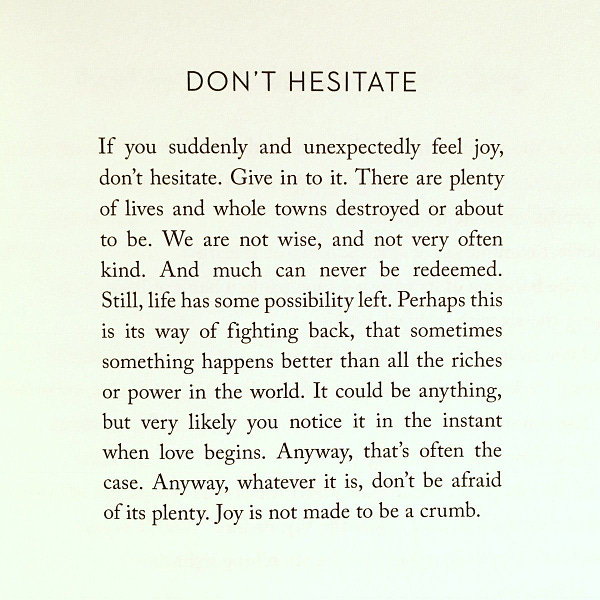



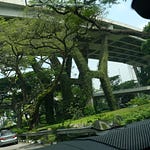
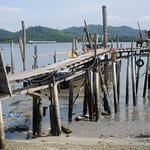

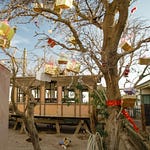
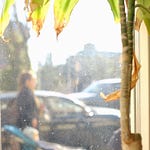


Landmarkings #10